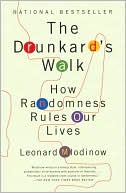Category Books
- Fiction Books & Literature
- Graphic Novels
- Horror
- Mystery & Crime
- Poetry
- Romance Books
- Science Fiction & Fantasy
- Thrillers
- Westerns
- Ages 0-2
- Ages 3-5
- Ages 6-8
- Ages 9-12
- Teens
- Children's Books
- African Americans
- Antiques & Collectibles
- Art, Architecture & Photography
- Bibles & Bible Studies
- Biography
- Business Books
- Christianity
- Computer Books & Technology Books
- Cookbooks, Food & Wine
- Crafts & Hobbies Books
- Education & Teaching
- Engineering
- Entertainment
- Foreign Languages
- Game Books
- Gay & Lesbian
- Health Books, Diet & Fitness Books
- History
- Home & Garden
- Humor Books
- Judaism & Judaica
- Law
- Medical Books
- New Age & Spirituality
- Nonfiction
- Parenting & Family
- Pets
- Philosophy
- Political Books & Current Events Books
- Psychology & Psychotherapy
- Reference
- Religion Books
- Science & Nature
- Self Improvement
- Sex & Relationships
- Social Sciences
- Sports & Adventure
- Study Guides & Test Prep
- Travel
- True Crime
- Weddings
- Women's Studies
The Drunkard's Walk: How Randomness Rules Our Lives » (Reprint)

Authors: Leonard Mlodinow
ISBN-13: 9780307275172, ISBN-10: 0307275175
Format: Paperback
Publisher: Knopf Doubleday Publishing Group
Date Published: May 2009
Edition: Reprint
Author Biography: Leonard Mlodinow
Leonard Mlodinow received his doctorate in physics from the University of California, Berkeley, was an Alexander von Humboldt fellow at the Max Planck Institute, and now teaches about randomness to future scientists at Caltech. Along the way he also wrote for the television series MacGyver and Star Trek: The Next Generation. His previous books include Euclid's Window: The Story of Geometry from Parallel Lines to Hyperspace, Feynman's Rainbow: A Search for Beauty in Physics and in Life, and, with Stephen Hawking, A Briefer History of Time. He lives in South Pasadena, California.
Book Synopsis
In this irreverent and illuminating book, acclaimed writer and scientist Leonard Mlodinow shows us how randomness, change, and probability reveal a tremendous amount about our daily lives, and how we misunderstand the significance of everything from a casual conversation to a major financial setback. As a result, successes and failures in life are often attributed to clear and obvious cases, when in actuality they are more profoundly influenced by chance.
How could it have happened that a wine was given five out of five stars, the highest rating, in one journal and in another it was called the worst wine of the decade? Mlodinow vividly demonstrates how wine ratings, school grades, political polls, and many other things in daily life are less reliable than we believe. By showing us the true nature of change and revealing the psychological illusions that cause us to misjudge the world around us, Mlodinow gives fresh insight into what is really meaningful and how we can make decisions based on a deeper truth. From the classroom to the courtroom, from financial markets to supermarkets, from the doctor's office to the Oval Office, Mlodinow's insights will intrigue, awe, and inspire.
Offering readers not only a tour of randomness, chance, and probability but also a new way of looking at the world, this original, unexpected journey reminds us that much in our lives is about as predictable as the steps of a stumbling man fresh from a night at the bar.
The New York Times - George Johnson
Mlodinow—the author of Feynman's Rainbow, Euclid's Window and, with Stephen Hawking, A Briefer History of Time—writes in a breezy style, interspersing probabilistic mind-benders with portraits of theorists like Jakob Bernoulli, Blaise Pascal, Carl Friedrich Gauss, Pierre-Simon de Laplace and Thomas Bayes. The result is a readable crash course in randomness and statistics that includes the clearest explanation I've encountered of the Monty Hall problem (named for the M.C. of the old TV game show "Let's Make a Deal").
Table of Contents
Ch. 1 Peering through the Eyepiece of Randomness: The hidden role of chance...when human beings can be outperformed by a rat 3
Ch. 2 The Laws of Truths and Half-Truths: The basic principles of probability and how they are abused...why a good story is often less likely to be true than a flimsy explanation 21
Ch. 3 Finding Your Way through a Space of Possibilities: A framework for thinking about random situations...from a gambler in plague-ridden Italy to Let's Make a Deal 41
Ch. 4 Tracking the Pathways to Success: How to count the number of ways in which events can happen, and why it matters...the mathematical meaning of expectation 60
Ch. 5 The Dueling Laws of Large and Small Numbers: The extent to which probabilities are reflected in the results we observe...Zeno's paradox, the concept of limits, and beating the casino at roulette 81
Ch. 6 False Positives and Positive Fallacies: How to adjust expectations in light of past events or new knowledge...mistakes in conditional probability from medical screening to the O. J. Simpson trial and the prosecutor's fallacy 104
Ch. 7 Measurement and the Law of Errors: The meaning and lack of meaning in measurements...the bell curve and wine ratings, political polls, grades, and the position of planets 124
Ch. 8 The Order in Chaos: How large numbers can wash out the disorder of randomness...or why 200,000,000 drivers form a creature of habit 146
Ch. 9 Illusions of Patterns and Patterns of Illusion: Why we are often fooled by the regularities in chance events...can a million consecutive zeroes or the success of Wall Street gurus be random? 169
Ch. 10 The Drunkard's Walk: Why chance is a morefundamental conception than causality...Bruce Willis, Bill Gates, and the normal accident theory of life 192
Acknowledgments 221
Notes 223
Index 239
Subjects
 All Science & Nature
All Science & Nature  Mathematics
MathematicsNonfiction
 Science & Nature
Science & Nature  Mathematics
MathematicsNonfiction
 Science & Nature
Science & Nature  All Science & Nature
All Science & Nature
